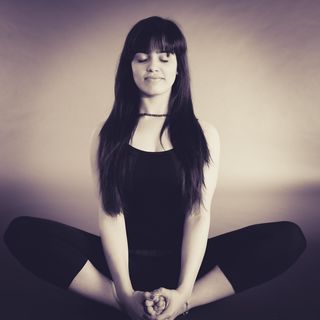Do You Worry?
A fresh perspective on facing uncertainty

Source: cc0 Public Domain
Our tendency to worry is linked to our external experiences. In any given week in my practice, I bear witness to worries about finances, job security, physical health, the well-being of a child, a parent, or even a pet. People worry about their relationships, how to handle a conflict, their body image, what other people think about them, and more. Lately, many of my patients have been sharing their worries for our country and the world, concerns about safety as well as our moral compass.
Psychotherapy offers many tools to help reduce anxiety. It also provides a space set aside to share worries in a relationship that can provide empathy and perspective. In psychoanalysis, we take a long-term approach by focusing on how the external world interfaces with the internal world, working to help patients become less worried in their general disposition, from the inside out. As the therapeutic work progresses, people become less worried as they develop the capacity to trust their own strengths, resilience, and sturdiness; to depend on others for help in time of need; to clear up distortions in their pictures of themselves and the world; and to accept the reality of uncertainty and the limitations of control.
To be honest, I am a worrier myself, so this is a bit of a physician-heal-thyself kind of essay. I confess that I like to believe that I can see trouble in advance and somehow prevent it. I feel badly when I miss something or when my efforts fall short, as they inevitably do. I know that this is a crazy-making and unhelpful attitude, and I have worked with some success in my own treatment to loosen my grip on it (and its grip on me). These days, I both try to worry less and try to cultivate a more accepting, less judgmental attitude toward my tendency to worry. It takes a lot of mindful discipline to accept this weakness in myself with understanding and compassion.

Source: cc0 Public Domain
Neither I nor the poets I love found the keys to
the kingdom of prayer and we cannot force God to stumble over us where
we sit. But I know that it’s a good idea to sit anyway. So every morning
I sit, I kneel, waiting, making friends with the habit of listening,
hoping that I’m being listened to. There, I greet God in my own
disorder. I say hello to my chaos, my unmade decisions, my unmade bed,
my desire and my trouble. I say hello to distraction and privilege...
I recognize and greet my burdens, my luck, my
controlled and uncontrollable story. I greet my untold stories, my
unfolding story, my unloved body, my own love, my own body. I greet the
things I think will happen and I say hello to everything I do not know
about the day. I greet my own small world and I hope that I can meet the
bigger world that day. I greet my story and hope that I can forget my
story during the day, and hope that I can hear some stories, and greet
some surprising stories during the long day ahead…
Hello to you all, I say, as the sun rises above the chimneys of North Belfast.
Hello.
Perhaps a more welcoming attitude will help us help them get along.

